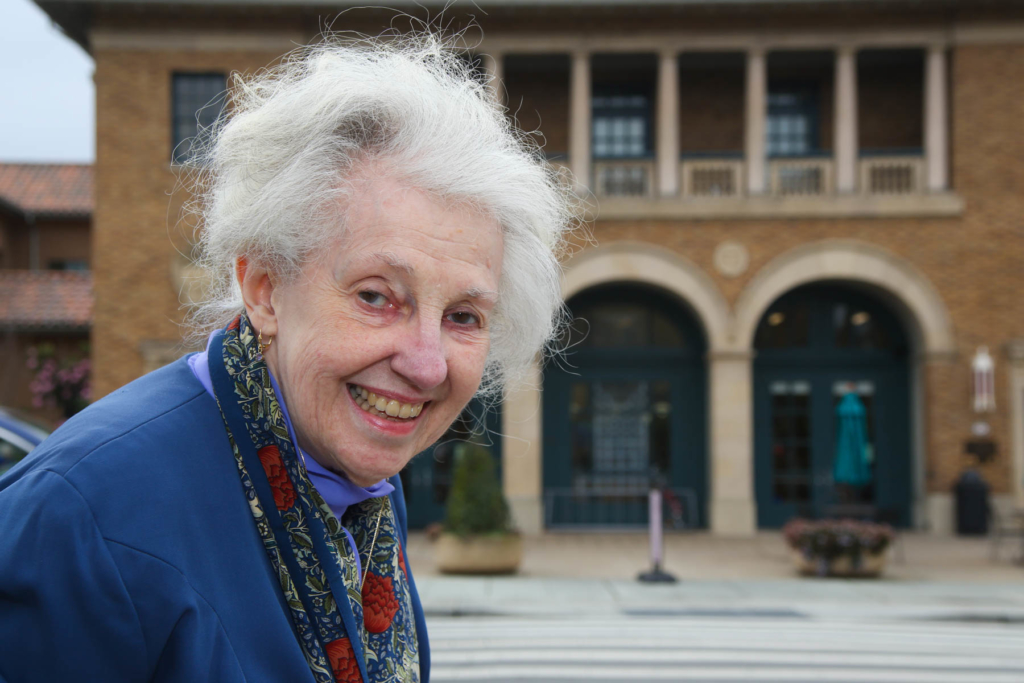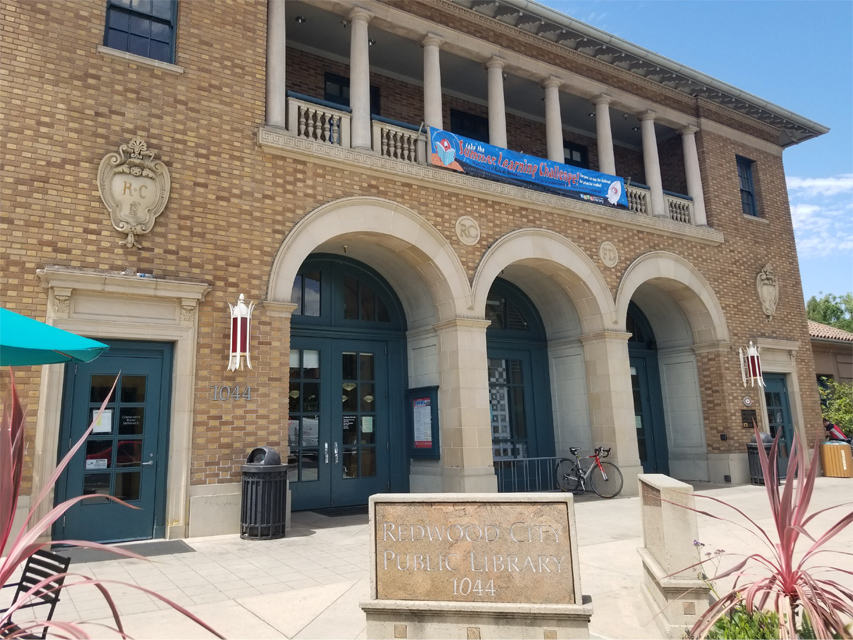The Redwood City Library lost an icon with the recent retirement of librarian Mary “Molly” Spore-Alhadef, whose long career encompassed the days when books were catalogued on Dewey Decimal index cards to today’s easy access propelled by the computer. She sees even more changes ahead.
“In the future, the question could be more important than the answer,” the veteran librarian said in an interview in the history room of the main library at 1044 Middlefield Road, an appropriate setting for a woman whose résumé includes several non-fiction works, including three chapters in “Redwood City: A Hometown History.” One chapter is entitled “Saloons, Breweries and Bordellos,” she said with a hint of pride. “I’ve never lived in Redwood City, but I know more about its history than most people.”
Spore-Alhadef was not dismissing technology when she talked about the future. In fact, she supervised the library’s computer room at the time of her retirement in December. Rather, she was stressing the important role of the librarian.

Mary “Molly” Spore-Alhadef
“The Internet has the answer, but people must know how to phrase the question to get the answer,” she said. “I’ve never seen so many people count on the library as a place to improve their lives and, through online courses, their job skills. Our proudest days on the job have been when patrons come back to the library after we’ve helped them learn computer skills or find information online, saying: ‘I’ve got the job!’”
Library Director Derek Wolfgram called Spore-Alhadef’s research skills “unparalleled when it comes to the nuggets of information contained in the pages of the library, particularly regarding the history of Redwood City and the Peninsula.” Her aid to history writers has been acknowledged in several books, among them “Images of America: Kings Mountain,” “Art Deco San Francisco: The Architecture of Timothy Pflueger,” and “Redwood City: Then and Now.” (In fact, she was mentioned by name in the latter book’s dedication.)
Spore-Alhadef’s abilities were demonstrated last year when a Korean television film crew flew across the Pacific to interview her about Korean pilots who trained in Redwood City in the early days of aviation. Among other bits of information, the librarian found an item from the 1921 Redwood City Standard reporting that a Korean pilot survived a plane crash at the Redwood City field.
It would be easy to assume that Spore-Alhadef was born and raised on the Peninsula. Her background, however, is East Coast, Boston to be specific. After spending 12 years at the Academy of the Assumption, she graduated from Boston College. As for her age, she will only say that she was a “war baby,” meaning she was born during World War II. “I will say that Mick Jagger and I are the same age.” The years of her career include library work at Boston College, Saint Patrick’s Seminary and Stanford University, as well as Redwood City. In addition, she found time to become a labor activist, serving 15 years in Redwood City as the chief steward of the Service Employees International Union. “I helped negotiate nine contracts with the city,” she said.
Her Redwood City service started in 1978 at the old library located across the street from the present one. The old structure, built in 1939 and now the site of City Hall, had limited space. At that time, more than 25,000 volumes were in storage.
In 1988 the library relocated a few yards away to Redwood City’s historic Fire Station No. 1. The firehouse was renovated and enlarged to 47,000 square feet. The building’s exterior front still boasts the original RCFD rondels, and two large red lights encased in ornate holders that serve as beacons in the night. In 1992 the library was judged the nation’s Library of the Year.
“The current library offered all the space we didn’t have in the old one,” Spore-Alhadef said, nodding in the direction of the hundreds of books lined up in the history room. Asked if her retirement plans include writing for the Journal of Local History published by the Archives Committee of the library she replied “of course” in an offhand tone. It just isn’t her research skills that will be missed by library patrons, said Wolfgram, the library director. There’s also her “quick wit and ability to tell a story.” Priceless.
This story was published in the March print edition of Climate Magazine.






